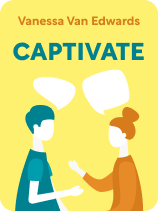

This article is an excerpt from the Shortform book guide to "Captivate" by Vanessa Van Edwards. Shortform has the world's best summaries and analyses of books you should be reading.
Like this article? Sign up for a free trial here.
What’s resource theory? How can you leverage it to deepen relationships?
In Captivate, Vanessa Van Edwards provides strategies to help you become a social superstar. She explains how you can apply Uriel G. Foa’s resource theory to understand people better, communicate with them effectively, bring out the best in them, and ultimately connect with them on a deeper level.
Read more to learn how to identify what people value most in life and then use that information to strengthen your relationships.
Resource Theory in Action
Van Edwards presents and discusses Uriel G. Foa’s resource theory, which states that each person has six primary resource needs stemming from childhood:
- Love (being accepted)
- Service (being cared for)
- Status (being recognized in a way that makes us feel proud)
- Money (having currency)
- Goods (having material items)
- Information (being taught or guided)
Van Edwards asserts that each of us values and prioritizes one resource need above all others and that this resource drives our behavior. When you know which resource people value most, you can use that to motivate them, make them feel validated, and strengthen your relationship with them.
To identify people’s top value, Van Edwards says you can listen for the things they consistently gripe or boast about, observe their behavior, and look for microexpressions and body language that communicate how they feel.
A person who values love the most may give hugs to everyone and desire acceptance from others. You can validate her need for love by sending her texts or notes saying you’re thinking of her.
A person who values service may be the go-to organizer of baby showers and fundraisers, and she may long for others to care for her. You can validate her need to have things done for her by organizing a surprise birthday party for her.
A person who values status the most may continually complain that her bowling league didn’t award her a trophy for winning her match and wish for others to recognize her. You can validate her need for status by acknowledging her publicly in a positive way.
A person who values money the most may constantly brag about the bonus she got and prioritize her finances. You can validate her need for currency by telling her that the bonus she got was well-deserved.
A person who values goods may collect swag like it’s gold. You can validate her need for material items by surprising her with small gifts.
A person who values information may conduct relentless Google searches of everything from potential dates to medical conditions to how to train dogs, and she may seek to be taught or guided. You can validate her need for information by getting her a subscription to a magazine or journal she might find of particular interest.
| Address Unmet Childhood Needs Head On Van Edwards asserts that the primary resource people value is often the thing they most long for and didn’t get in childhood, and she recommends identifying and catering to those needs. However, some suggest that feeding the chasm that those voids left is not enough—you should also work to heal them. You can help people address unmet childhood needs by encouraging them to give themselves the love, praise, and feeling of being cared for that they desire and mourn the loss of what they didn’t receive. You can also remind them of their ability to develop helpful coping skills to address what they lack. Whether someone regularly chooses toxic partners and friends because they didn’t get the love and care they needed as a child, feels empty inside because they didn’t receive validation that things they did were worthy of recognition, or struggles with impulsivity and control issues because they grew up without money, the more you can help them address the challenges they face, the healthier and better able they’ll be to engage in healthy ways with you and others. |

———End of Preview———
Like what you just read? Read the rest of the world's best book summary and analysis of Vanessa Van Edwards's "Captivate" at Shortform.
Here's what you'll find in our full Captivate summary:
- How socially awkward people can become social superstars
- How to make yourself likable and memorable
- Methods to establish and improve relationships with others






